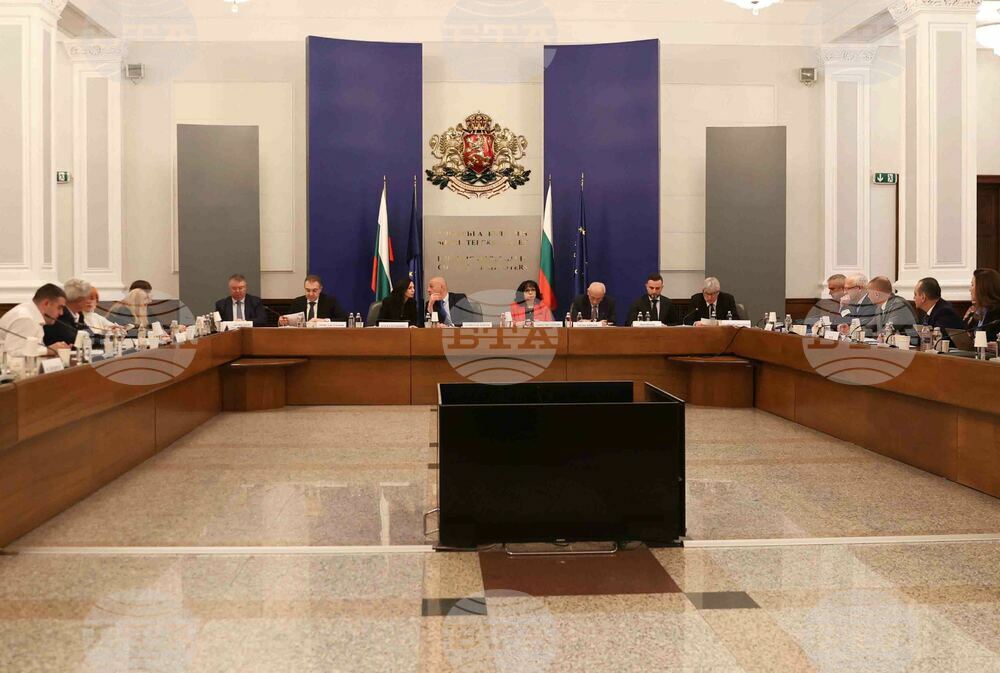site.btaTripartite Council Discusses 2025 Public Social Insurance Budget Bill


The National Council for Tripartite Cooperation Monday discussed the 2025 Public Social Insurance Budget Bill.
National Social Security Institute (NSSI) Governor Ivaylo Ivanov: The financial parameters of the budget bill are based on the assumption that work-contingent pensions granted before December 31, 2024, will increase by 8.6% as of July 1, with the percentage calculated according to the Swiss rule. The same increase, effective from the same date, applies to the minimum work-contingent pensions, the social old-age pension and related benefits and allowances. [Under the Swiss rule, pensions are adjusted annually based on a formula that combines 50% of the previous year's inflation and 50% of the growth in the average contributory income.]
Public social insurance revenues in 2025 are projected at nearly BGN 15.216 billion, up by 18.1% from 2024. This revenue growth reflects the rise in the minimum wage from BGN 933 to BGN 1,077, income policies in the public sector and an increase in the maximum monthly contributory income from BGN 3,750 to BGN 4,130. The policies embedded in the budget bill do not impair the financial position of public social insurance; on the contrary, they create conditions for its strengthening.
In 2025, the average pension is expected to increase by 10.4% in nominal terms, while its purchasing power will rise by nearly 7.8%. Pension expenditures are projected to exceed BGN 24.1 billion, around 11.1% of the projected GDP for the year. Expenditures on cash benefits and social assistance will be nearly BGN 3.074 billion.
Labour and Social Policy Minister Borislav Gutsanov thanked all partners in the government for finding a way to dialogue and reaching a good solution for the most vulnerable part of the population, ensuring that "they will not bear the burden of the difficult circumstances we are facing".
The Finance Ministry also supports the Public Social Insurance Budget Bill.
Bulgarian Industrial Capital Association (BICA) Board Chairman Vasil Velev: BICA refrains from supporting the Public Social Insurance Budget Bill and suggests either freezing pensions or removing the COVID supplement from pensions. Given that in 2022-2024 the average pension increased by 71% while inflation stood at 25%, we have raised pensions for several years ahead. BICA suggests that public sector employees cover their social security contributions in the same proportion as those employed in the real sector under the Labour Code.
Bulgarian Industrial Association Vice President Maria Mincheva: When discussing pension adjustments, it is important to be honest with retirees about the NSSI's long-term projections. Sizable pension increases come to an end this year. In 2026 and 2027, the expected growth will be around 4% or lower.
Bulgarian Chamber of Commerce and Industry President Tsvetan Simeonov supports the Public Social Insurance Budget Bill in principle, but objects to the increase in the maximum monthly contributory income by administrative means.
The Confederation of Employers and Industrialists of Bulgaria refrained from supporting the bill. Its main disagreement stems from the lack of a mechanism to regulate the increase in the maximum contributory income and the minimum wage, which employers have advocated consistently.
The Confederation of Independent Trade Unions in Bulgaria will support the Public Social Insurance Budget Bill on three conditions: an increase in social security contributions, raising the minimum daily unemployment benefit to BGN 30, and limiting the declaration of social security contributions without actual payment to a maximum period of six months.
Podkrepa Confederation of Labour President Dimitar Manolov: One of the reasons we do not support the proposed budget is the 5% pay rise for NSSI employees. We were reluctantly willing to agree to 10%, but now we are being offered only 5%.
/LG/
Additional
news.modal.image.header
news.modal.image.text
news.modal.download.header
news.modal.download.text
news.modal.header
news.modal.text





















